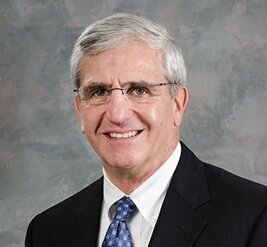Will, Estate, and Trust Disputes
Conflicts over wills, trusts, and estates are often characterized by highly emotional parties with deeply entrenched perspectives and alliances, and patterns that may stretch back over generations. Add to these factors what may be significant financial stakes and the difficulties of managing such disputes become apparent.
Family lawyers, estate planners, financial advisors, and family members may find themselves caught in the crossfire. Experienced mediators and arbitrators can provide a less adversarial, safe, and supportive process allowing all parties to preserve relationships that might otherwise be irreparably harmed during a contentious court battle.
Contesting a Will
When the validity of a will is contested with one family member or faction leveling charges of undue influence or lack of testamentary capacity, a number of people may end up entangled in the resulting litigation. Family members, lawyers, advisors, trustees, beneficiaries, and personal representatives may all find themselves involved in some way in what frequently deteriorates into a messy set of disputes that can be difficult to navigate.
Submitting these issues to the Probate Court and waiting for its decision can be excessively time-consuming and can further damage already fragile relationships. A skilled mediator can help everyone to work through the issues, arriving at an acceptable resolution while minimizing the financial and emotional costs to everyone. Sometimes an arbitrator can help by issuing a neutral decision that is binding on the parties, putting an end to lingering, destructive will disputes.
Distribution of Estates or Assets
A death in the family frequently results in emotional fragility for surviving family members. This can exacerbate pre-existing family tensions and divisions, making it difficult to maintain rational and reasonable discussions about the division of property and distribution of assets.
When one or more family members feel that the handling of these matters is unfair or inequitable, the situation can deteriorate quickly. Family friends, lawyers, and advisors can find it difficult to intervene effectively. Differing memories of past communications or understandings of the decedent’s intentions can inflame family dynamics and dysfunctions that make it difficult for everyone to work towards a resolution.
An experienced mediator, or sometimes a team of mediators, can help everyone reach an acceptable solution.
Breach of Fiduciary Duties / Trustee Malfeasance
Whether through the provisions of a Will or Trust or through a Probate Court appointment, Personal Representatives and Trustees as fiduciaries owe a “duty of utmost loyalty” to protect the interests of all beneficiaries.
Disputes arise over their conduct when some (or all) beneficiaries make any of a wide variety of claims amounting to a breach of fiduciary duty. These might include:
favoring one beneficiary over another
negligently mismanaging assets
failing to properly account for all expenses of the Estate or the Trust or misappropriating funds
These claims are often emotional and deeply felt as they reflect a violation of the trust that has been placed in the fiduciary. In addition, they may play into preexisting and long-held family dynamics. The fiduciary may feel caught in the web of dysfunctional dynamics even after taking the utmost care.
Letting these disputes fester for the many years it may take for litigation in the Probate Court may only serve to make matters more adversarial and cause the waste of the collective family assets. The saving of costs, delay, emotional angst, and family relationships are profound advantages of the negotiated resolution a mediation can provide. Where mediation is not possible, arbitration can cut through the many complex layers of such disputes to yield a final, binding resolution, enabling the parties to move on with their lives. Contact us to learn more.
Our Experts Specializing in Civil Disputes















